Life
Emmi Pikler was born in 1902 and spent her early childhood in Vienna. She was the only child of a Viennese kindergarten teacher and a Hungarian craftsman. In 1908 her parents moved to Budapest. When Pikler was 12 years old, her mother died.
Pikler returned to Vienna to study Medicine, and received her medical degree in 1927. Her pediatric training was at the Vienna University Children's Hospital by Clemens von Pirquet and Pikler studied pediatric surgery under Hans Salzer.
Pikler's husband was a mathematician and educator whose experiences aligned with her own perspective on developmental physiology. They decided together with the birth of their first child to allow the child freedom of movement and to await her development patiently, with the goal of promoting her healthy development. Pikler’s experience with her daughter helped build her perspective that a child must not be stimulated to movement and to games and that every detail in dealing with a child and their environment is important.
At first the family lived in Trieste, and later in Budapest.
In 1935 Pikler qualified as a pediatrician in Hungary. Pikler wrote and gave lectures about the care and upbringing of infants and young children. She published her first book for parents in 1940 and it went through several editions in Hungary and other countries.
The ten years that she worked as a family doctor were difficult. Pikler’s family was Jewish and her husband was imprisoned for political reasons from 1936 to 1945. With the help of the parents of the children she cared for, Pikler and her family survived the persecution of Jews during World War II.
After the war she gave birth to two more children. She did not open her private practice again, but worked for a national association for abandoned and malnourished children. In addition to other activities, she founded the Lóczy orphanage (named after the street where it was located) in 1946, which she headed until 1979. She sought to establish a comforting atmosphere, including careful selection of the staff, to allow children at the orphanage to grow up without the usual institutional damage.
Elsa Gindler and Henry Jacoby found in the 1920s that it was essential to understand the natural path of child development in order to allow the child's initial skills and powers to develop. Gindler and Jacoby explained that traditional infant and early childhood education damaged the initiative of children and stunted their development.
In 1946 Pikler founded the Lóczy Institute in Budapest. Under her leadership, and by the publication of books and scientific publications, an internationally known institution developed that is now managed by Pikler's daughter, child psychologist Anna Tardos. After Pikler retired in 1978, she continued her scientific and consultative work in Lóczy. In 1984 Pikler died after a short but severe illness.
Pikler's methods of raising infants and young children have been popularized in the United States by her student Magda Gerber.

Pediatrics is the branch of medicine that involves the medical care of infants, children, adolescents, and young adults. In the United Kingdom, paediatrics covers many of their youth until the age of 18. The American Academy of Pediatrics recommends people seek pediatric care through the age of 21, but some pediatric subspecialists continue to care for adults up to 25. Worldwide age limits of pediatrics have been trending upward year after year. A medical doctor who specializes in this area is known as a pediatrician, or paediatrician. The word pediatrics and its cognates mean "healer of children," derived from the two Greek words: παῖς and ἰατρός. Pediatricians work in clinics, research centers, universities, general hospitals and children's hospitals, including those who practice pediatric subspecialties.
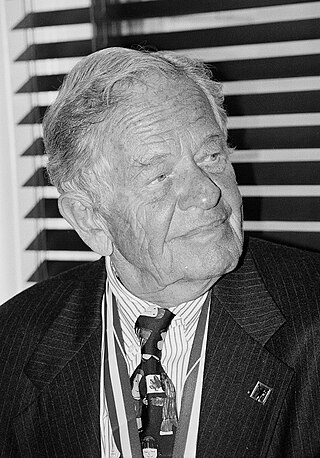
Thomas Berry Brazelton was an American pediatrician, author, and the developer of the Neonatal Behavioral Assessment Scale (NBAS). Brazelton hosted the cable television program What Every Baby Knows, and wrote a syndicated newspaper column. He wrote more than two hundred scholarly papers and twenty-four books.

Die Csárdásfürstin is an operetta in 3 acts by Hungarian composer Emmerich Kálmán, with libretto by Leo Stein and Bela Jenbach. It premiered in Vienna at the Johann Strauß-Theater on 17 November 1915. Numerous film versions and recordings have been made. The operetta is widely beloved across Europe, particularly in Hungary, Austria, Germany, and the former Soviet Union, where it was adapted into a popular film. It is arguably Kálmán's most successful work.

A children's hospital is a hospital that offers its services exclusively to infants, children, adolescents, and young adults from birth up to until age 18, and through age 21 and older in the United States. In certain special cases, they may also treat adults. The number of children's hospitals proliferated in the 20th century, as pediatric medical and surgical specialties separated from internal medicine and adult surgical specialties.
Margaret Schönberger Mahler was an Austrian-American psychiatrist, psychoanalyst, and pediatrician. She did pioneering work in the field of infant and young child research. On the basis of empirical studies, she developed a development model that became particularly influential in psychoanalysis and Object relations theory. Mahler developed the separation–individuation theory of child development.
Béla Schick was a Hungarian-born American pediatrician. He is the founder of the Schick test. Bela Schick was born in Balatonboglár, Hungary, and brought up in Graz, Austria, where he attended medical school. In 1902, he joined the Medicine Faculty of the University of Vienna where he remained until 1923. Studying problems of immunity, he and Clemens von Pirquet first coined the term 'allergy' as a clinical entity. His discovery of a test for susceptibility to diphtheria made him world famous. From 1923 he directed the Pediatric Department of Mount Sinai Hospital, New York City. From 1936 he was also professor at Columbia University. From 1950 to 1962 Schick headed the Pediatric Department of Beth-El Hospital, Brooklyn, NY. His later interests included the nutrition of the newborn and feeding problems in children.
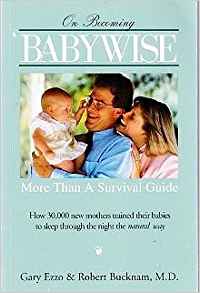
On Becoming Baby Wise: Giving Your Infant the Gift of Nighttime Sleep is a Christianity-based infant management book written by Gary Ezzo and pediatrician Robert Bucknam in 1993. Baby Wise presents an infant care program which the authors say will cause babies to sleep through the night beginning between seven and nine weeks of age. It emphasizes parental control of the infant's sleep, play and feeding schedule rather than allowing the baby to decide when to eat, play and sleep.

Anne Tardos is a French-born American poet, visual artist, academic, and composer.
Elsa Gindler was a somatic bodywork pioneer in Germany.
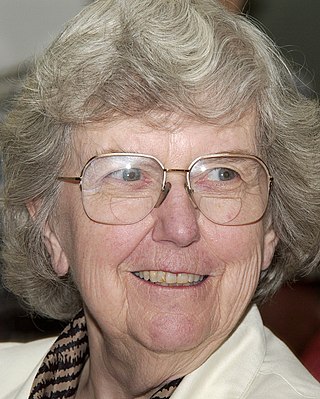
Mary Ellen Avery, also known as Mel, was an American pediatrician. In the 1950s, Avery's pioneering research efforts helped lead to the discovery of the main cause of respiratory distress syndrome (RDS) in premature babies: her identification of surfactant led to the development of replacement therapy for premature infants and has been credited with saving over 830,000 lives. Her childhood, mentors, drive, and education inspired Avery to be the visionary that she was. In 1991 President George H.W. Bush conferred the National Medal of Science on Avery for her work on RDS.
Magda Gerber was an early childhood educator in the United States and is known for teaching parents and caregivers how to understand babies and interact with them respectfully from birth.
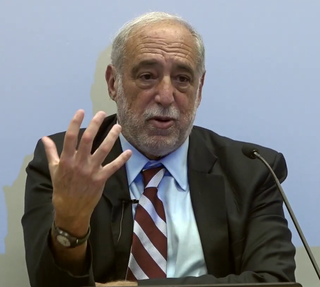
Barry S. Zuckerman is Professor and Chair Emeritus of the Department of Pediatrics at Boston University School of Medicine/Boston Medical Center. He started the Division of Developmental and Behavioral Pediatrics at the Boston University School of Medicine and Boston City Hospital and was one of 12 founders of the Society of Developmental and Behavioral Pediatrics. He was appointed chair of Pediatrics in 1993 and was asked to be First Medical Director of Boston Medical Center when Boston City Hospital merged with University Hospital. He is a co-founder of Reach Out and Read, a national childhood literacy program in the United States, founder of Medical-Legal Partnership, and co-founder of Health Leads, Healthy Steps, and the Nutrition & Fitness for Life pediatric obesity program, all of which have transformed pediatric care for low-income families. Most recently, along with colleagues, he developed a free app for pediatric primary care called "Small Moments, Big Impact" to promote the mother-infant relationship and emotional well-being for low-income mothers from birth through the first six months of their baby's life.

Jane Aronson, D.O. is an osteopathic physician, with expertise in pediatric infectious diseases and adoption medicine.
Karen Anne Spencer, Countess Spencer is a Canadian social entrepreneur. She is the founder and CEO of Whole Child International, a U.S.-based non-governmental organization (NGO) that works to improve the quality of care for vulnerable children.
Whole Child International is a U.S.-based non-governmental organization (NGO) founded in 2004. Whole Child focuses on improving the quality of care for vulnerable children worldwide by working within childcare institutions (orphanages) and in limited-resource childcare centers where children often show the same unmet developmental needs and poor outcomes as those in orphanages. Whole Child's program is built as a countrywide collaboration, working together with a national government and a major local university to implement a unified strategy across a nation's childcare system.

Ervin Szabó was a Hungarian social scientist, librarian and anarcho-syndicalist revolutionary.

Heim Pál National Pediatric Institute is a children's hospital located in several locations in Budapest, Hungary.
Resources for Infant Educarers is a Los Angeles-based non-profit worldwide membership organization dedicated to improving the quality of infant care and education through teaching, supporting, and mentoring. It advocates showing respect for a baby’s experience and encourages parents to treat their children as active participants rather than passive objects. The name RIE is also used to describe the approach to childcare that the organization advocates.

Cora Bussey Hillis was a child welfare advocate. Her work advanced children's health care, education, and the juvenile justice system in Iowa. She was admitted into the Iowa Women's Hall of Fame in 1976. Hillis Elementary School in Des Moines, Iowa was named for her.
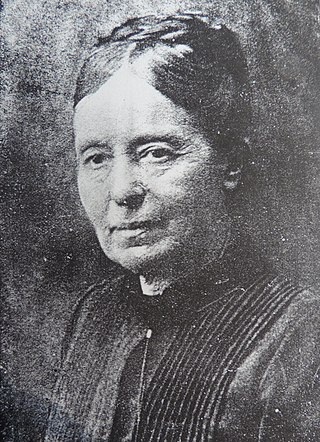
Adele Zay was a Transylvanian teacher, feminist and pedagogue. Her family were part of the German-speaking community of the Kingdom of Hungary. Because of her father's death during her infancy, Zay's education was interrupted by periods where she taught to earn money in order to continue private and formal studies. In 1880 after studying abroad in Vienna and Gotha, she passed her primary education certification for Germany and Hungary. The following year, she was certified as a secondary teacher, becoming the first Transylvanian woman to have earned a higher education. From 1875 to 1884, she taught at the Institute of Irma Keméndy in Szeged.













